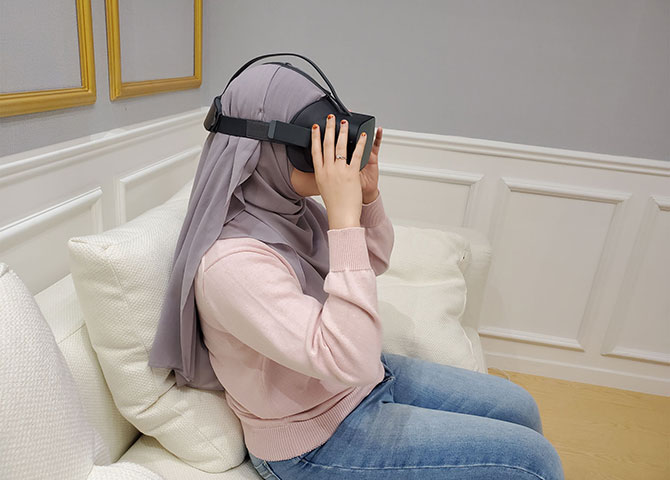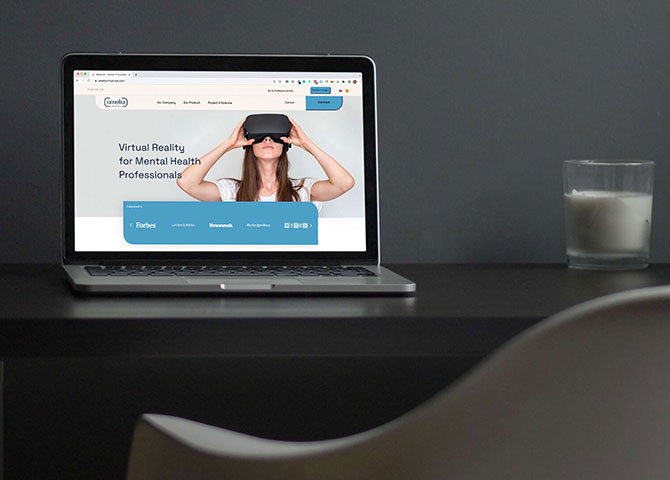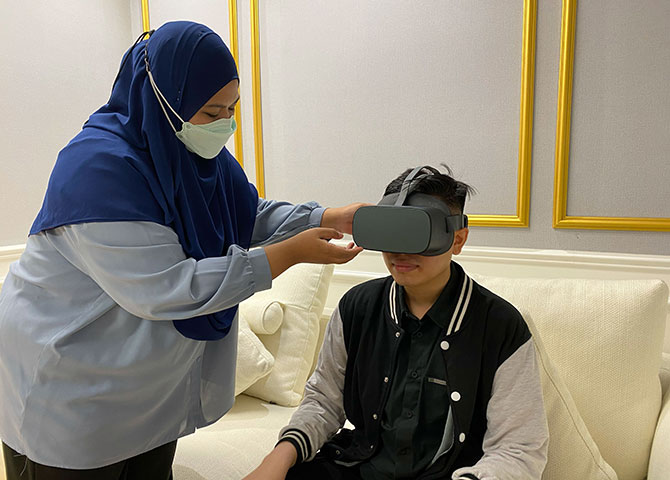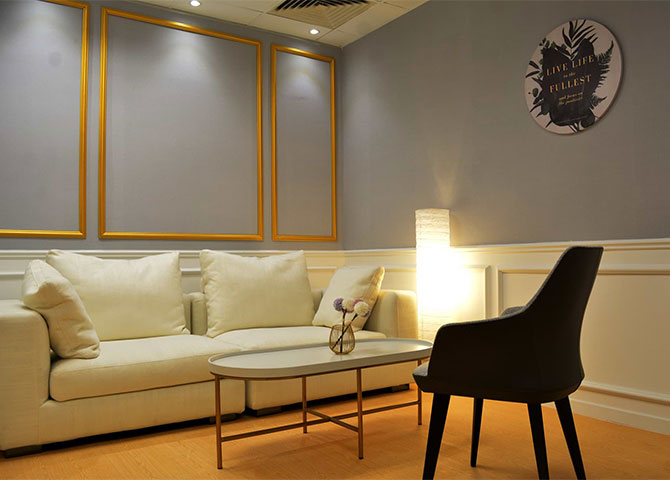With the constant need to multitask and stay productive today, some may find it difficult to stay focused on the present and cope with the stresses of modern life. But just as exercise helps to improve your physical fitness, therapy can help you relax and gain better awareness of your surroundings.
As part of its Brighter Wellness Program to promote holistic wellness, Sun Life Malaysia recently collaborated with KL-based mental health provider MentCouch to spread awareness about innovative therapies to overcome challenges in the mental health industry.
Their partnership draws special attention to the use of virtual reality (VR) in therapy to assist in relaxation techniques to cope with stress, as well as to train social skills and memory work. We speak to the team at MentCouch to learn more about VR therapy and how it can be applied to improve mental health in Malaysia.

Tell us about the VR therapy services offered at MentCouch.
MentCouch: What we are doing is very new and we focus mostly on relaxation to give the community an option where they can come and relax, and to help people who find it very hard to focus. What VR does is it gives us an image and trains us to focus on the image and relax better. It has been used in many parts of Asia and around the world, but it’s still very much in its infancy. This is our attempt to introduce it in Malaysia.
How does VR therapy help with phobias?
MentCouch: For phobias, patients will have to come for a psychological consultation first, then we may use VR as part of the exposure therapy. But it’s not the sole therapy we offer for phobia, because everyone is different and some may not like it. If a patient has a phobia that is within our VR software system, then we tell them that VR is an option. But if a patient has a phobia that is very specific and is not within the software, then we will continue with our usual exposure therapy.

What are the phobias included in the VR software used at MentCouch?
Currently, MentCouch offers VR Exposure Therapy for these nine different phobias:
- Driving phobia (Amaxophobia)
- Height phobia (Acrophobia)
- Flying phobia (Aerophobia)
- Animal and insect phobia (Cat, Dogs, Spiders, Pigeons, cockroaches)
- Tight spaces phobia (claustrophobia)
- Cleanliness (Mysophobia)
- Fear of exams (Examinophobia)
- Fear of medical appointments (blood and MRI scan) (Iatrophobia)
- Social anxiety
How is VR therapy different from conventional therapy?
MentCouch: Basically, the therapy is standard—it uses exposure therapy. But the difference is that we incorporate technology to enhance this standard therapy. Its purpose is to help people release tension and relax, and this is usually followed by talk therapy with our therapists as well.

How do you think VR therapy will evolve in 10 years?
MentCouch: If you look at the West, it has become quite common to use virtual reality for therapy purposes. In 10 years, I think it will just become more and more common and people will recognise it as an option where technology can be used to aid your imagination.
Now we have the VR goggles, but in the future—or even right now in the US—there are haptic feedback gloves that vibrate to make you feel like you’re touching what you see, so it will be much more immersive. Not only will you get to see and hear things, but you can also feel them. Over time, VR therapy may include other senses to help you immerse further in the virtual environment.
Will MentCouch be looking to provide more VR therapy services in the future?
MentCouch: We try to remain as fluid as possible and we are always trying to introduce all these new experiences to the mental health community in Malaysia and Asia. We strongly believe that there is no one size fits all approach as everyone is different, so therapy should be like that also—we should be able to fit everyone’s style of approach.

Who would be suitable for VR therapy and who may not be suitable for it?
MentCouch: Someone who is suitable would be someone who is interested in virtual reality and is above 13 years old. Most developers of VR goggles specify that they are only suitable for use by individuals aged 13 and above. This is because studies have shown that exposure to VR at a younger age may affect the development of their spatial intelligence, so we follow this SOP to avoid any risks.
As for who may not be suitable for VR therapy, since the technology is still new, one of the difficulties people may face is motion sickness. People who have epilepsy may also not be suitable for VR therapy because of the blinking lights in VR that may trigger epilepsy. There are risks for these two categories, but outside of these, VR therapy should be applicable to the majority of the population.

What do studies show about the effectiveness of VR therapy versus other forms of therapy?
MentCouch: One recent study, which incorporated over 200 studies, found that for exposure therapy, VR is more effective than just conventional talk therapy because clients can immerse themselves in the environment. However, VR therapy is not meant to replace psychological consultation or counselling—it doesn’t overpower that. I have to also mention that so far, there are not a lot of studies that have been done because VR therapy is still very new, so in the years to come, we’ll have a better idea [of its efficacy].
Considering the fact that mindfulness is the new buzzword in social media, VR is also one of the most effective techniques for mindfulness. I think many people these days find it very hard to focus on the present moment and our minds are always wandering, so VR is an amazing tool to practise mindfulness.
Having said that, VR is not something you just try once because when you come for a session, it may feel like a gaming experience where there are so many things in a 3D environment. The first session may be over before you know it in the excitement of it all, so to really achieve the relaxation state and to get the flow of the VR experience, you need to come for a few sessions. It’s not something where you come and magic happens; it has to be a gradual process.
To find out more or to book a therapy appointment, visit mentcouch.com. For more information about Sun Life’s Brighter Wellness Programme, click here.
Find more stories on mental health here.
| SHARE THE STORY | |
| Explore More |


